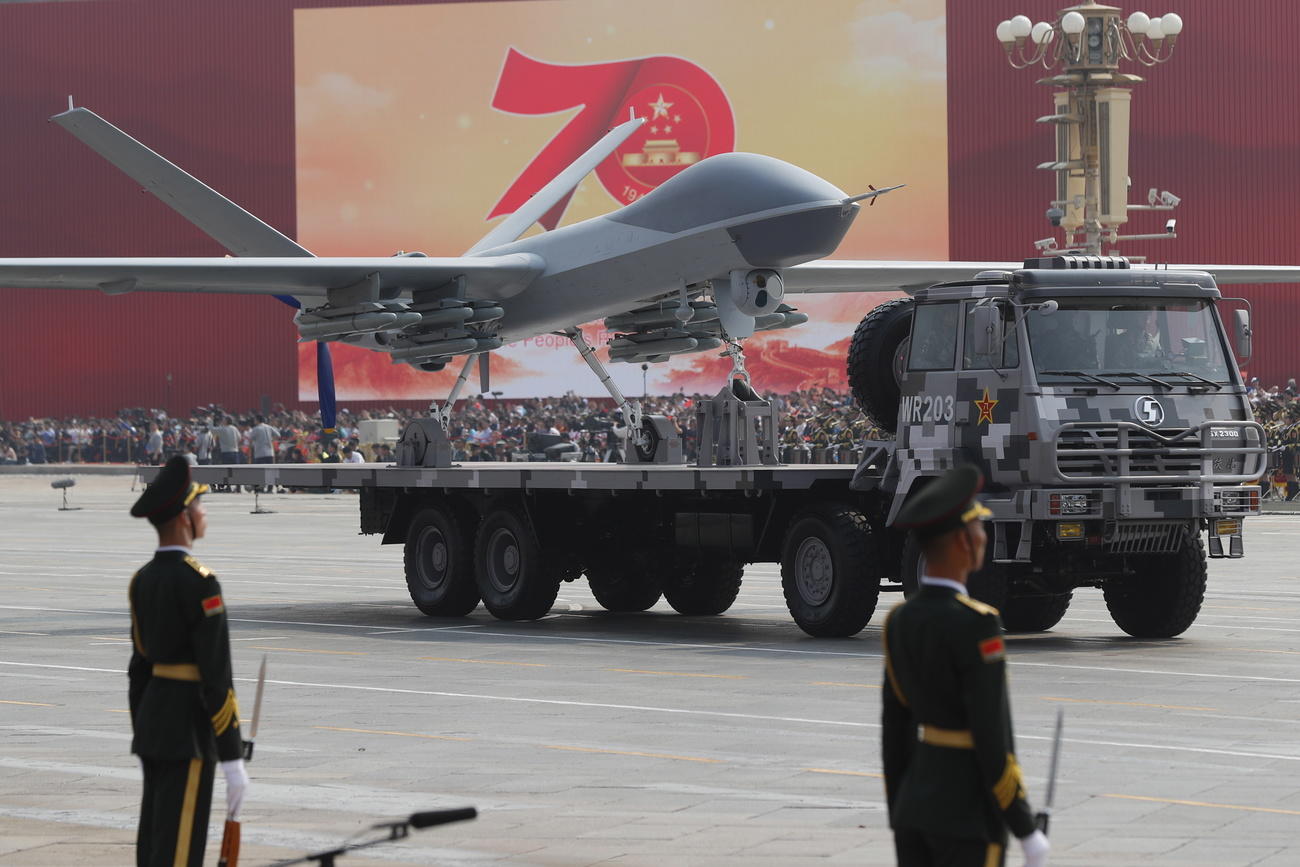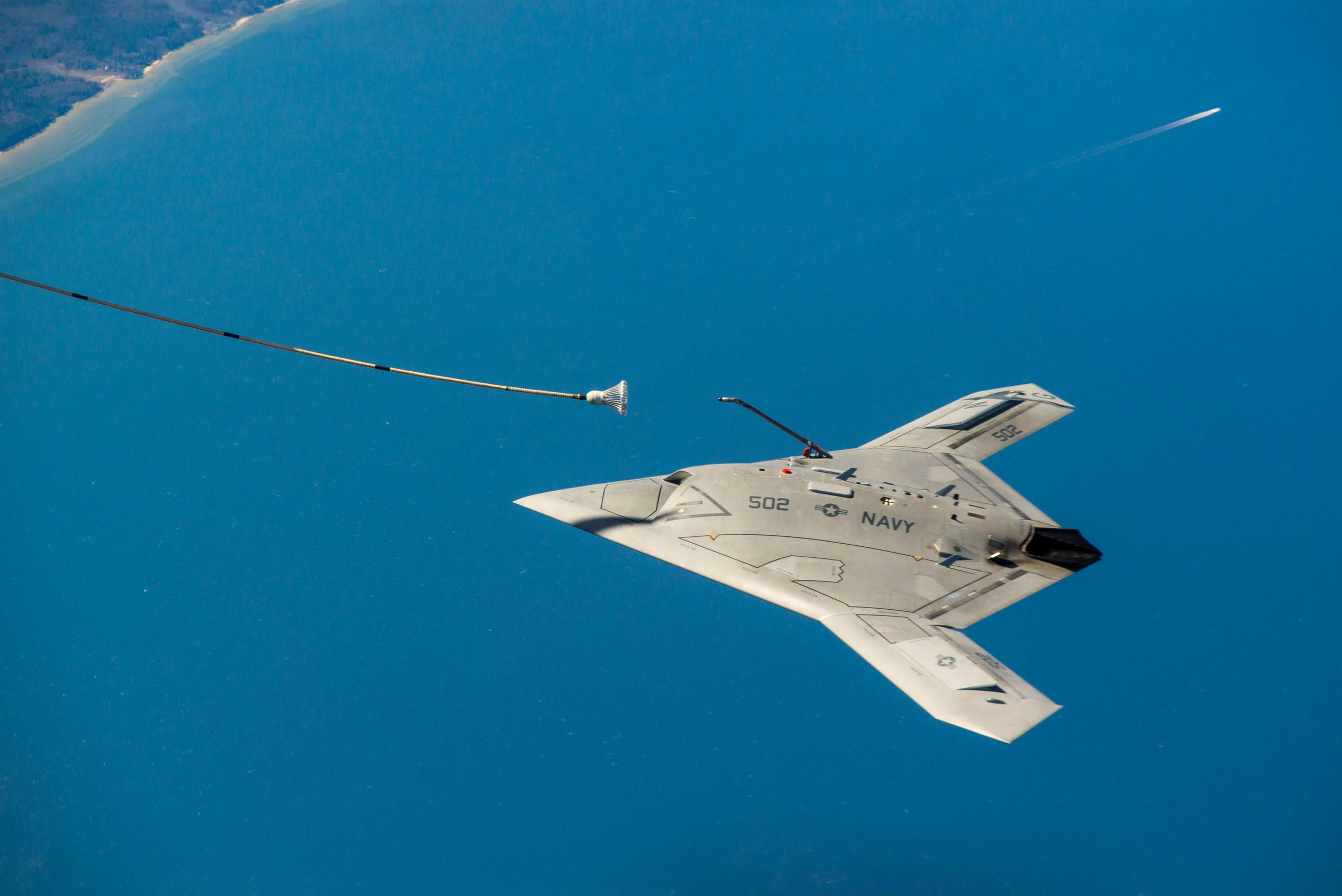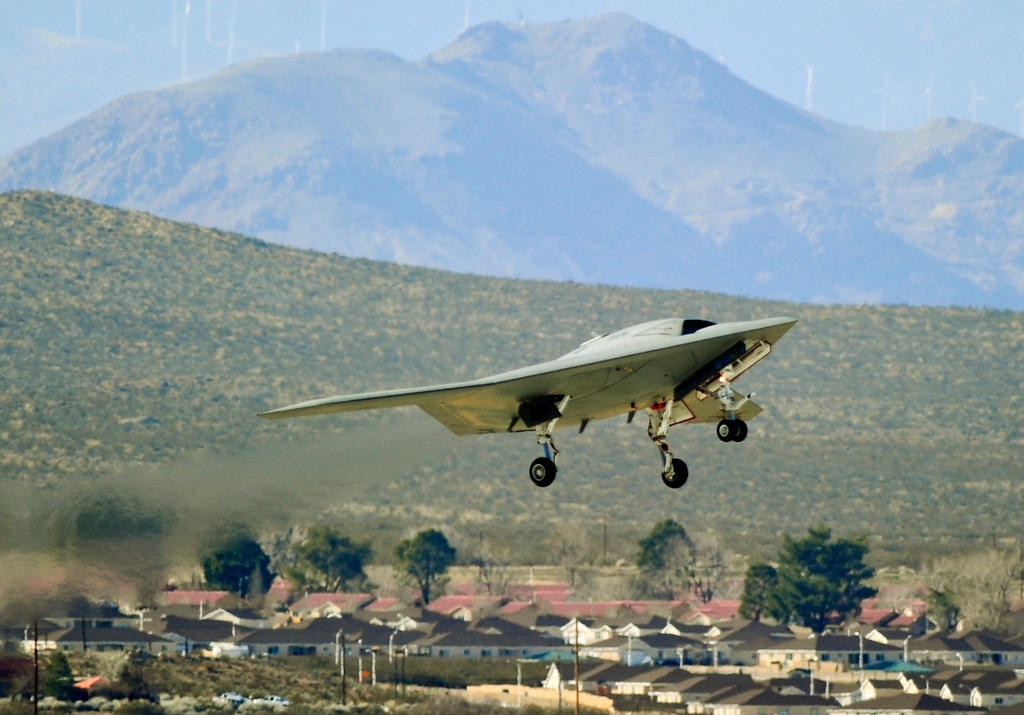Poll: most Swiss support ban on killer robots

Seven out of ten Swiss people believe their country should support a ban on lethal autonomous weapons systems (LAWS), so-called killer robots, a new poll has revealed.
The survey conducted by YouGov, commissioned by the Campaign to Stop Killer RobotsExternal link, found widespread support in ten European countries, including Switzerland, for a ban on killer robots.
The poll showed that 72% of respondents in Switzerland favoured a ban. The largest support was found in Ireland (81%) and the Netherlands (80%).
In all, 13% of respondents in the ten nations believe their country should not support such a ban, and 14% said they don’t know or preferred not to answer. Support for a ban was equally strong among both women (74%) and men (71%). A previous pollExternal link conducted in 2018 showed that 61% of the general public in 26 countries were against the use of killer robots.
Fully autonomous weapons do not yet exist, but campaigners say they could be deployed in battle in just a few years given rapid advances and spending on artificial intelligence and other technologies.
But partly autonomous weapon and military robotics systems – such as AI-powered tanks, planes and ships – have reportedly been deployed or are under development in 12 countries, including Britain, China, France, Israel, Russia and the United States. And the technology is proliferating globally. A new report by Pax for PeaceExternal link said many companies are on a “slippery slope to producing ever more autonomous weapons”.
Legal and ethical challenges
LAWS have been the subject of intense international scrutiny. Since 2013, diplomats, disarmament experts and campaigners have met in Geneva within the multilateral Convention on Conventional Weapons (CCW)External link framework to discuss the multiple ethical, legal, operational, security and technical challenges of killer robots. But the CCW has yet to produce any tangible result.
On Wednesday, state parties to the CCW gathered in Geneva for a three-day annual meeting to discuss killer robots, as well as issues such as explosive weapons in populated areas, incendiary weapons, mines other than anti-personnel mines and financial matters. They are expected to agree on the CCW’s work programme for the next two years.
Some campaigners complain that the CCW continues to drag its feet on killer robots.
“While the CCW makes minimal progress, the rest of the world is racing ahead to embrace a ban and tech firms are racing ahead for ever greater autonomy. If the CCW doesn’t get its act together it’ll become irrelevant,” said Steve Goose from Human Rights Watch.
Some 30 countries have called for a pre-emptive global ban treaty on the development, possession and use of such future weapons. Others advocate strict regulation to affirm the principle of “meaningful human control” over critical functions.
But there is strong opposition to a treaty from a handful of countries, including the US, Russia, Israel and South Korea. Supporters argue that LAWS will make war more humane. They will be more accurate in choosing and eliminating targets, not give way to human emotions such as fear or vengeance, and will limit civilian deaths, say those in favour.
Swiss position on killer robots
The Swiss government is sceptical about a preventive ban at this stage, but it backs practical, and if necessary, regulatory measures to prevent any use of LAWS that would violate international law. In 2017, it tabled a working paper entitled a “Compliance-based approach to Autonomous Weapons SystemExternal link” that reaffirms the importance of international law.
In 2017, the Swiss Federal Council (executive body) rejectedExternal link calls for an international ban on LAWS. It said it had “reservations” and that clarification was first needed regarding “desirable”, “acceptable” and “unacceptable” autonomy of weapons systems.
At the last CCW meeting in March 2019External link, Switzerland said it remains convinced “that a political declaration represents the most promising way forward”. It could “enshrine common principles regarding the development and use of autonomous weapon systems”. Switzerland stated that a “key element that a declaration should cover is the applicability and the centrality of ensuring respect for international humanitarian law in all circumstances”.
A declaration “should highlight that High Contracting Parties remain responsible for wrongful acts and that individual responsibility should be guaranteed”. Switzerland added that “a declaration should also capture that it is in nobody’s interests to deploy weapons that are unpredictable, and no weapon should be used without appropriate human control”.

More
Killer robots: ‘do something’ or ‘do nothing’?

In compliance with the JTI standards
More: SWI swissinfo.ch certified by the Journalism Trust Initiative




You can find an overview of ongoing debates with our journalists here. Please join us!
If you want to start a conversation about a topic raised in this article or want to report factual errors, email us at english@swissinfo.ch.